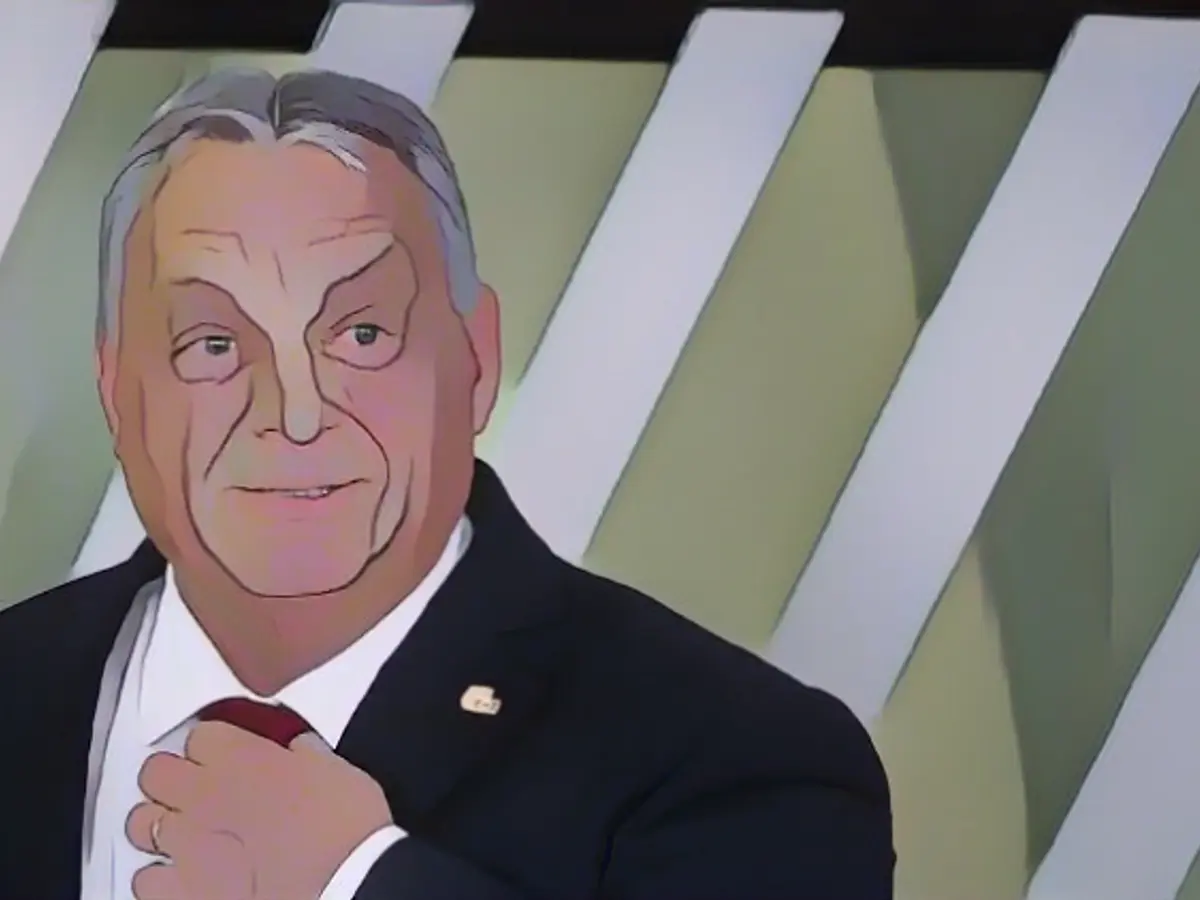Viktor Orbán, Hungary's Prime Minister, is putting the EU leaders through their paces at the EU summit in Brussels, delaying its commencement due to his blockade threats. A small group discussion has been scheduled with Orbán, Chancellor Scholz, French President Macron, and EU Commission President von der Leyen, aimed at settling the dispute regarding freeing up EU funds for Ukraine's accession talks.
Orbán has threatened to veto EU summit decisions concerning the start of accession negotiations with Ukraine and Moldova, and a revision of the long-term EU budget. At issue is Ukraine's incomplete fulfillment of reform requirements and the Bulgarian proposal's inadequacy in meeting Hungary's expectations.
EU diplomats speculate that Orbán might simply be using pressure tactics to release further EU funds for his country. Others, however, contest this view, citing Orbán's firm stance against backing down on the issue of Ukraine.
Shortly before the EU summit, the EU Commission announced they would release approximately 10 billion euros in frozen EU funds for Hungary due to their compliance with judicial reforms. Funds marked for Hungary's budget and coronavirus aid, amounting to nearly 12 billion euros, are still withheld.
The Ukrainian government's Foreign Minister Dmytro Kuleba warned of severe consequences if the EU summit fails to begin EU accession negotiations with Ukraine due to a Hungarian veto. This would not only demotivate the Ukrainian people but also send a negative message to the international community about the EU's decision-making capabilities.
In addition to approving Ukraine and Moldova's EU accession talks and supplementing the EU's long-term financial plan, the EU summit will also decide to allocate 50 billion euros to Ukraine, providing financial support during the next few years.
Orbán's veto threats and opposition to Ukraine's EU entry have raised concerns about Hungary's alignment with the EU and its stance on the EU's response to the Ukraine crisis. EU officials have accused Hungary of blackmail tactics, and Commission President Ursula von der Leyen has criticized Hungary's issuing of visas to Russian nationals without proper background checks.
Sources:
Enrichment Data:
Hungary's objections to the proposed EU military aid package for Ukraine involve not only the overall €6 billion amount but also its opposition to EU sanctions against Russians and Belarusians. Orbán has argued that the EU should negotiate a ceasefire, criticizing the current strategy of sending massive aid to Ukraine. Hungary also shows close ties with Moscow, despite Russia's full-scale invasion of Ukraine in 2022.
The EU has accused Hungary of blackmail, specifically, Orbán raising the prospect of blocking decisions as a means to influence the EU's decisions, particularly regarding sanctions and aid to Ukraine. Commission President Ursula von der Leyen has subsequently commented on Hungary's issuing of visas to Russian nationals without thorough background checks.
Ukraine's accession process is progressing, with Ukraine achieving candidate status within months of application in June 2022. The country aims to open all negotiation clusters by the end of 2025, a fast pace unseen in EU accession negotiations, but this depended on Ukraine addressing the EU's concerns, including easing martial law restrictions, and addressing minority rights and opposition rights.
Potential outcomes of the Hungarian-led deadlock include:
- A continued deadlock, potentially undermining the EU's credibility and effectiveness in addressing the Ukraine crisis, leading to further divisions within the EU and isolating Hungary from the rest of the bloc.
- Compromise and negotiation between the EU and Hungary, proving challenging given Orbán's stance and requiring significant EU concessions.
- Increased pressure on Hungary, using economic or diplomatic leverage, but risking polarization within the EU and potential escalation of tensions.
- Progress in Ukraine's ability to address EU concerns and make significant advancements in its accession talks, ultimately persuading the EU to move forward despite Hungary's opposition.








